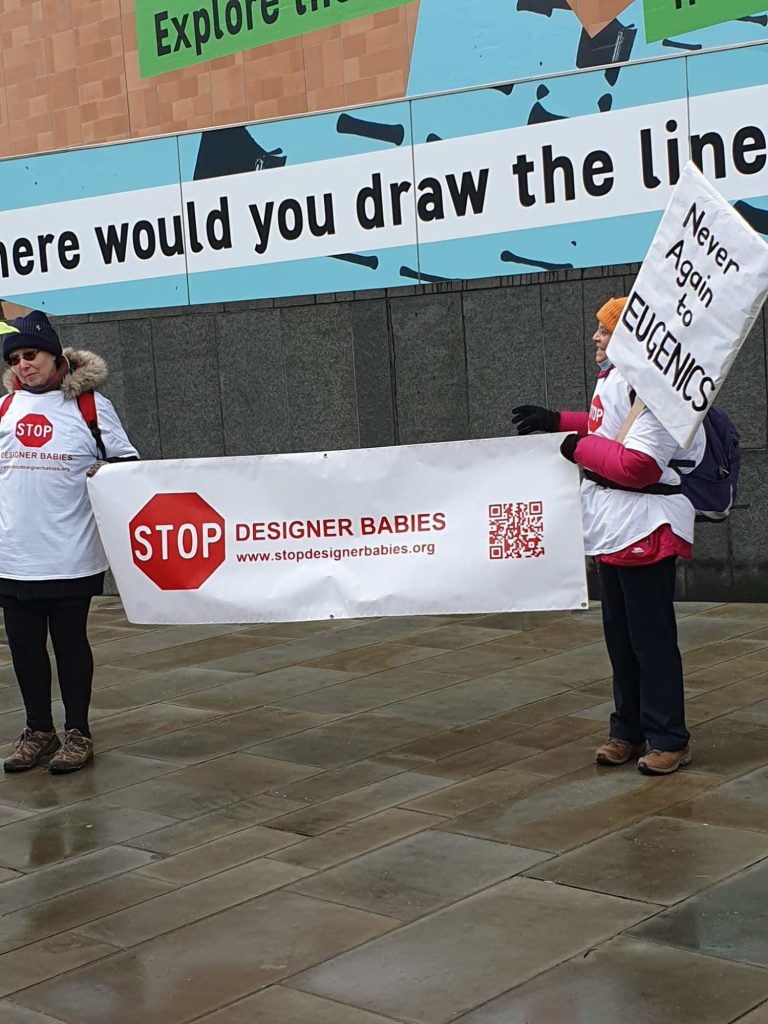The debate over the power of billionaires in America is driven by critics who see them as rapacious tax cheats and by defenders who see them as embodiments of the American dream.
But what do regular people think?
A new, exclusive poll from Vox and Data for Progress pulls back the curtain on how Americans feel about the exploding net worth of billionaires during the Covid-19 pandemic, their record-setting philanthropy as a way to address inequality, and whether they have too much political power in the country’s elections. The poll was fielded in February and surveyed likely voters.
read the full results here, and these are some of the highlights.
How Americans feel about billionaires during the pandemic
The pandemic has exacerbated wealth inequality, and many Americans are resentful of the fact that while they struggled, the wealthy made significant gains.
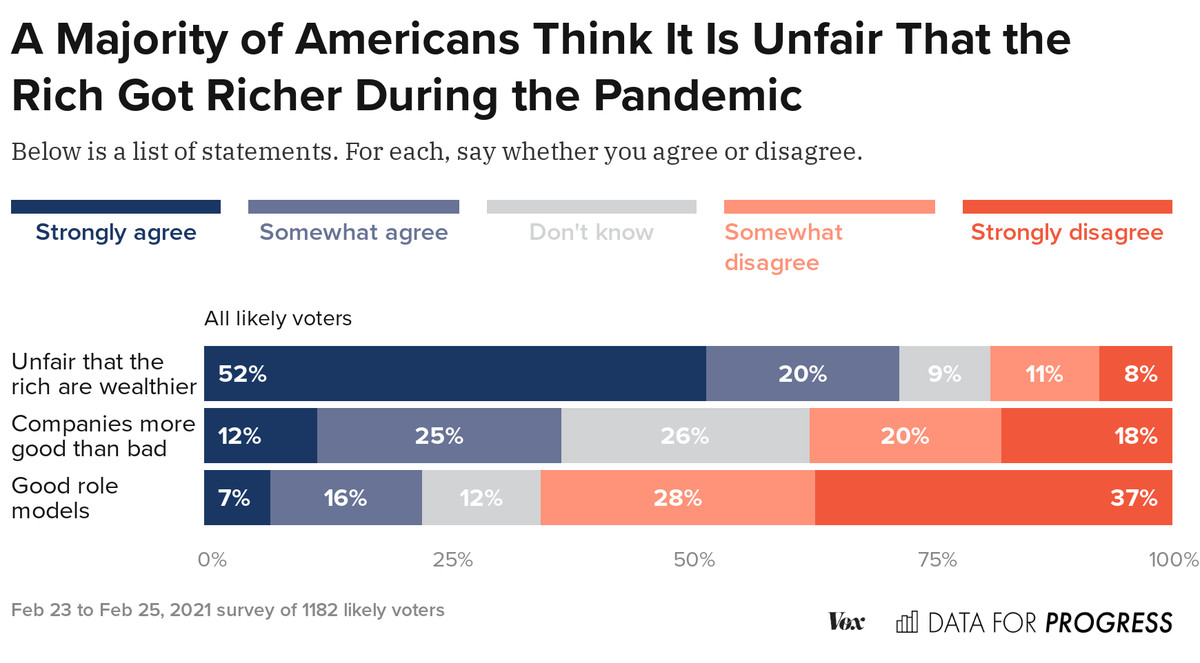
By a wide gap — 72 percent to 19 percent — voters polled say it was unfair that billionaires got wealthier during the pandemic. That conclusion is shared across all racial, partisan, socioeconomic, and other demographic groups.
This unease is reflected in questions that speak to Americans’ more generalized opinions about the top 1 percent, which were generally shared across the political spectrum. Only 23 percent of those polled said they consider billionaires to be good role models for the country, while 65 percent said they don’t.
Similarly, only 36 percent said they had generally positive feelings about billionaires, as opposed to 49 percent who said they did not. Black Americans said they had much more positive feelings about billionaires than did members of other racial subgroups: 45 percent said they felt positively, while only 39 percent said they felt negatively. Democrats were also more likely to be anti-billionaire than Republicans.
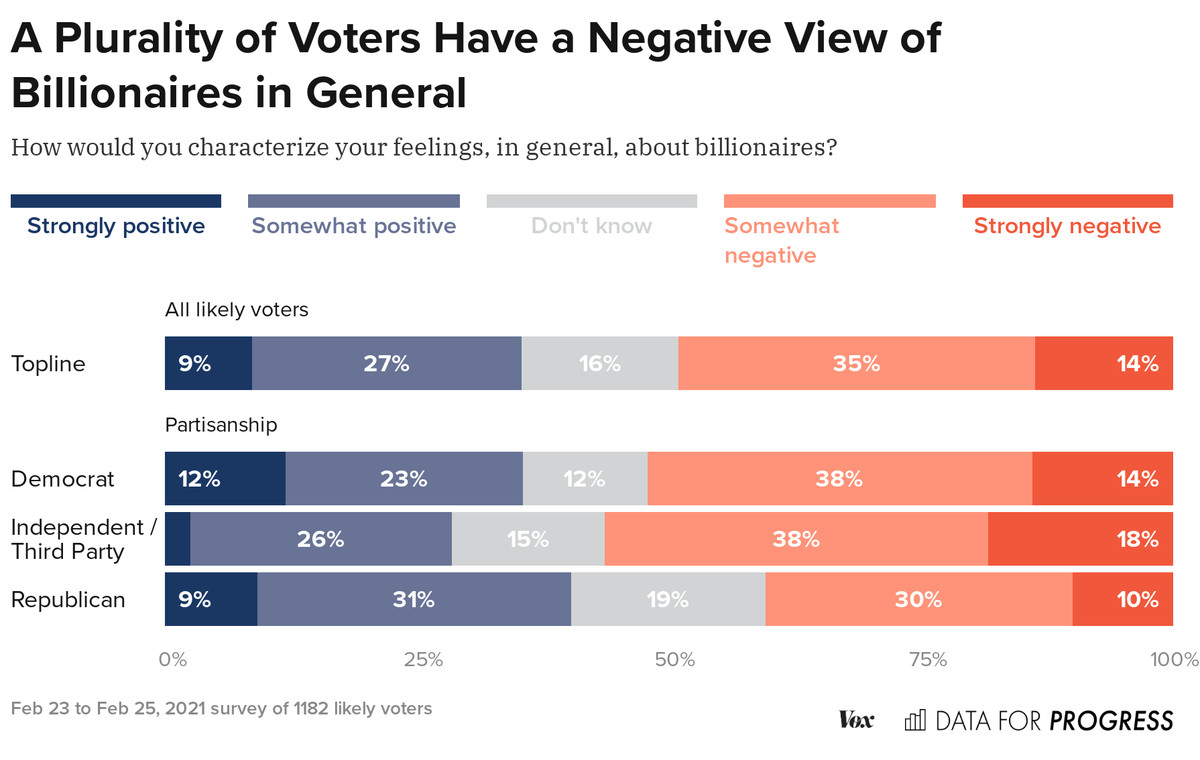
And yet Americans are broadly dismissive of some progressive rhetoric about something being fundamentally wrong with a society that features billionaires. Around 82 percent say they agree with the statement that people should be allowed to become billionaires — similarly, 68 percent say they disagree that it’s immoral for a society to allow people to become billionaires.
How Americans feel about billionaire philanthropy
Voters give billionaires positive marks when it comes to their philanthropy. When asked whether billionaires do a good job at giving away their money through philanthropy, 47 percent say they agree; only 33 percent say they don’t.
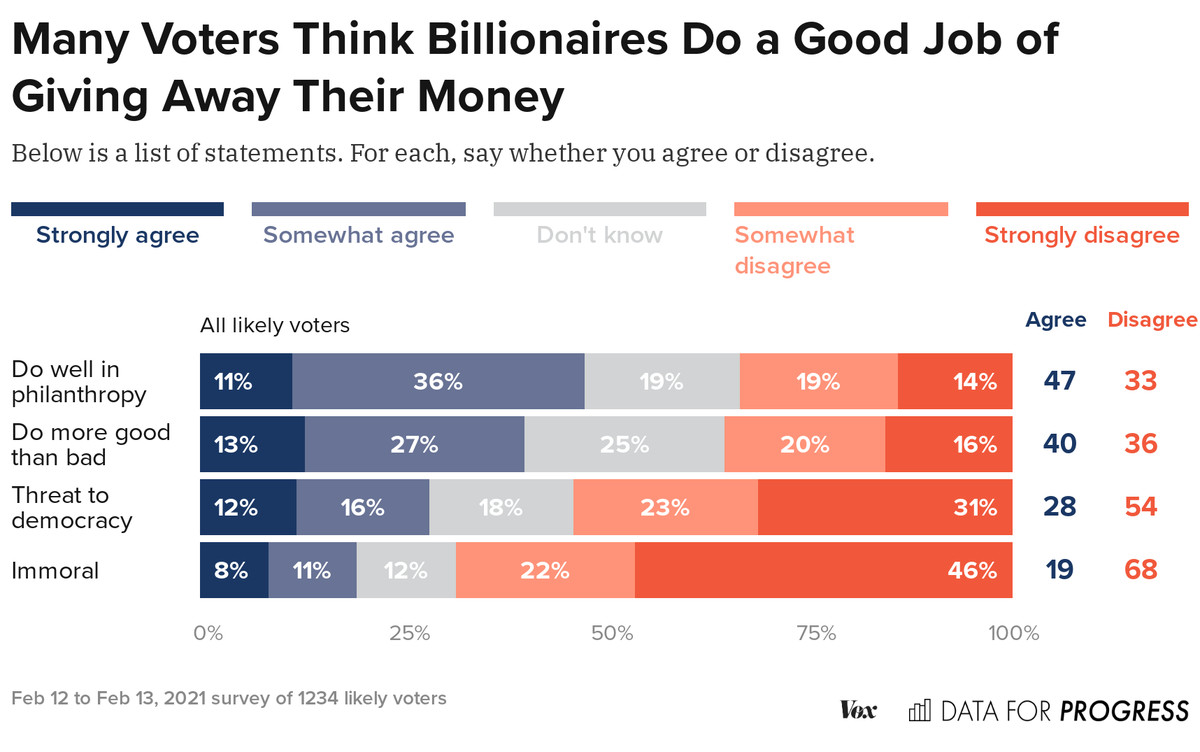
However, they do not think philanthropy is a sufficient solution to solve Americans’ inequality problems. When asked which is a better fix for the country’s problems during the pandemic — raise taxes or seek more charity from the wealthy — 52 percent chose the former and 38 percent indicated the latter.
How Americans feel about Bill Gates, Elon Musk, Jeff Bezos, and Mark Zuckerberg
Four tech billionaires have become some of the world’s most influential people during the pandemic, at center stage in America like never before. Vox asked voters how they felt about these increasingly unavoidable figures.
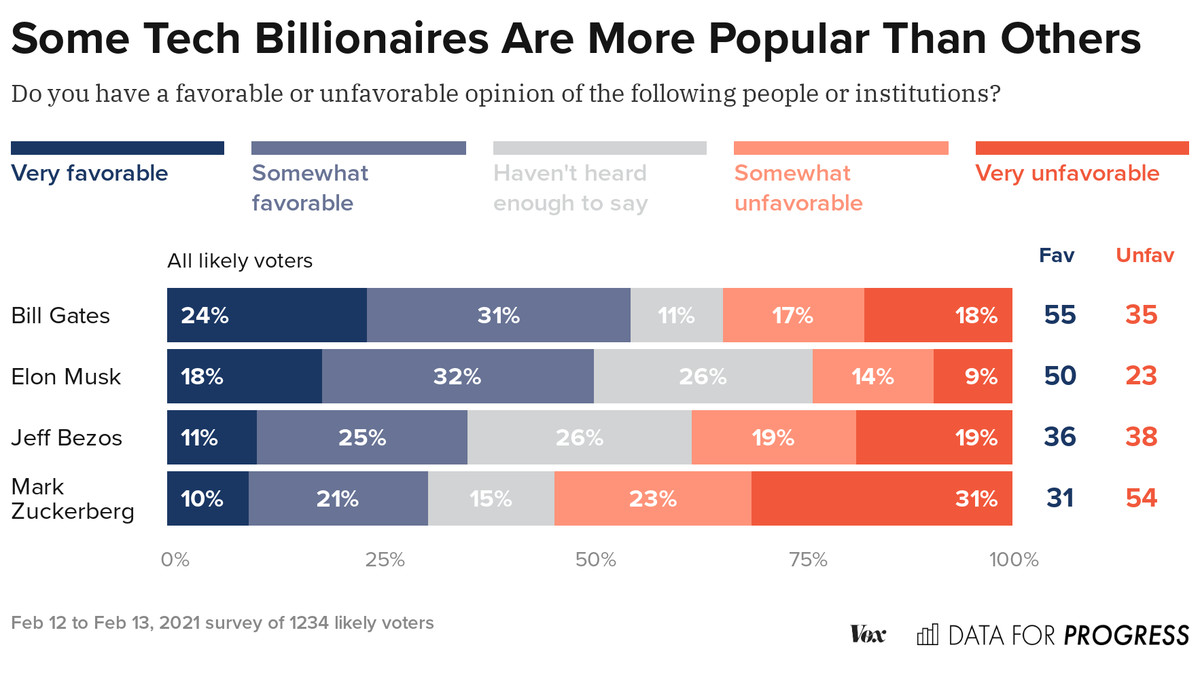
Elon Musk is the most popular of the tech billionaires polled, with 50 percent saying they had a favorable opinion of the Tesla founder, currently the world’s second-richest person. Musk is a bipartisan figure: 52 percent of Democrats have a favorable opinion (versus 22 percent unfavorable), and 48 percent of Republicans hold a favorable opinion (versus 25 percent unfavorable.) Musk is especially popular with men: A staggering 66 percent of men view him favorably (versus 21 percent unfavorably).
Bill Gates, who has played a quasi-governmental role during the pandemic from his perch and his eponymous foundation, is also viewed very favorably in the throes of the crisis — 55 percent of respondents said they felt this way versus 35 percent who felt differently. Gates is especially popular with Democrats, who are fans by a 55-percentage point margin.
Jeff Bezos and Mark Zuckerberg, both lightning rods in their own ways, are less popular figures. Just about as many people view Bezos unfavorably as view him favorably. And Zuckerberg himself is under water by a significant margin; 54 percent say they have an unfavorable opinion, including 64 percent of Republicans.
How Americans feel about billionaires’ political power
What unites Americans is a belief that billionaires have too much influence in the political system. Among those polled, 61 percent say they feel that these ultra-wealthy people had too much influence in the 2020 election (62 percent of Republicans agreed with this statement, as did 55 percent of Democrats).
Whether Joe Biden himself was too close to this billionaire class, predictably, depends on partisanship. Only 20 percent of Democrats say that’s the case while 72 percent of Republicans say so.
Nevertheless, despite being concerned about these billionaires’ power, American voters do not think they pose any sort of existential risk. Asked if billionaires are a threat to democracy, only 28 percent said they agreed, while 54 percent said they disagreed.






